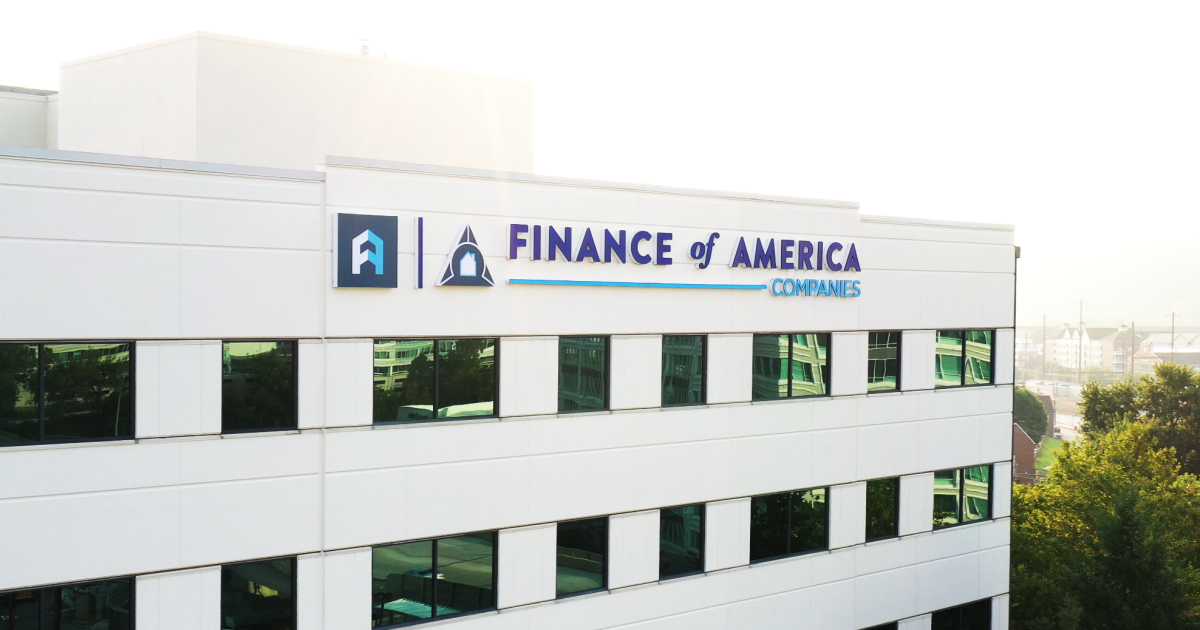
The costs of Finance of America's repositioning have led Fitch Ratings to make a downward revision to the company's long-term issuer default rating.
The rating action followed a regular review of the company and its peers. Operational losses related to FOA's acquisition of American Advisors Group and a decline in tangible equity to negative $5 million drove the slight drop in already speculative-grade rating to CCC+ from B-.
However, fund affiliates of Blackstone that have a higher investment-grade rating of A+ back the company, Fitch Associate Director Ryan Wallace and Senior Directors Eric Orenstein and Bain Rumohr noted in the report.
The rating action highlights the importance of a profitable pivot away from traditional residential lending at FOA. New View Advisors ranked Finance of America Reverse the top Home Equity Conversion Mortgage securitization issuer in the third quarter.
Finance of America's strong strategic position within a consolidating reverse-mortgage market is a plus for its ratings but there's concern about how its weaker financial position will affect its ability to borrow.
Funding agreements hinge on the strength of certain company financials and Fitch reported that Finance of America has received some waivers from providers in that regard.
In addition to securitizations, the company relies on a mix of warehouse financing, secured lines of credit, nonrecourse debt and unsecured notes to fund its operation like many of its peers do. Many of its sources of funding have a one-year term.
Many nonbanks rely on warehouse financing often provided by depositories to fund loan pipelines before the sale of mortgages to the investors. Questions about its availability have arisen due to the proposed tightening of a bank capital rule and Comerica's exit from the space.
Longer funding terms, more committed lending facilities or increased liquidity could improve Fitch's view of Finance of America.
FOA's borrowing has contracted as it has exited traditional mortgages. The total capacity of its warehouse financing and lines of credit was $1.8 billion in the second quarter, down from $5.5 billion a year earlier. Third quarter numbers were pending at the time of this writing.
Unrestricted cash in the second quarter totaled $56 million and with secured lines of credit that haven't been utilized for funding purposes at $68 million, this represents 8% of total debt 1.3x coverage of borrowings other than warehouse lending that are due in a year, according to Fitch.
Senior unsecured debt represented 28% of Finance of America's total borrowing during the second quarter and $350 million of it outstanding matures in November 2025.
One positive Fitch noted for the company is a shift in Ginnie Mae policy for HECM securitizations, which could decrease the need to rely on warehouse funding.
"Ginnie Mae's recently announced rule changes related to the timing of participation securitizations should allow FOA to more quickly securitize its tail balances," the analysts said in the report.
Ginnie has been working to adjust policies that improve the liquidity of assets in the HECM mortgage-backed securities market since it was forced to seize servicing from the bankrupt Reverse Mortgage Funding late last year.
The company's stock was trading in a range just above $1 per share at the time of this writing.



